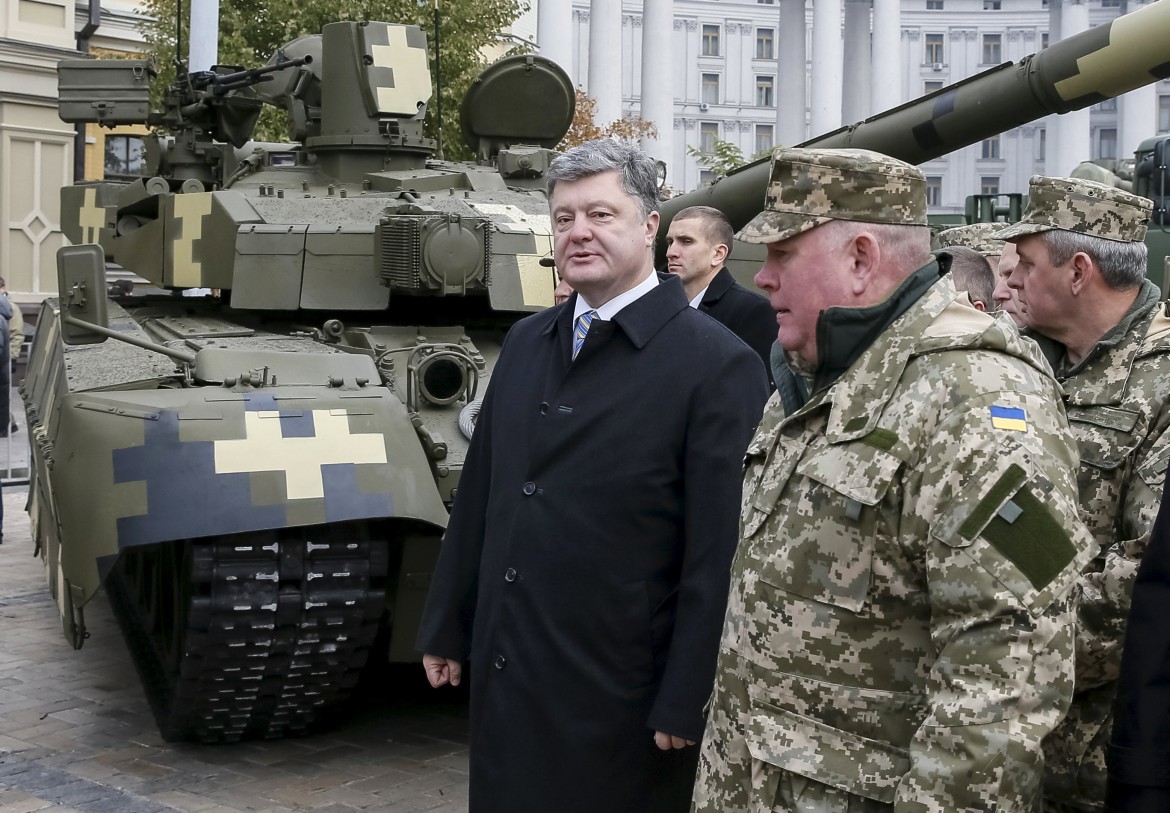Commentary.
What the world gets wrong about Ukraine
The country, which just approved an anti-discrimination law and allowed NATO to conduct exercises, is more than just the sum of its historical political ties.

The Ukrainian Parliament has quietly passed a law, unpalatable to most of its members, against sexual discrimination in the workplace. The law allows the E.U. to enable Ukrainian citizens to move freely within the union without a visa.
That law passed, along with one that authorizes NATO to carry out exercises on Ukrainian territory starting Nov. 16 (until late December), demonstrating that if Ukrainian oligarchs often forget the promises made to Europeans, they are more responsible with those made to the Americans and NATO.
These decisions and words are relevant. The law against sex discrimination is certainly a success for the LGBT community of Ukraine, which has always been targeted, and not only by right-wing groups (as happened during the last attempted gay pride parade in Kiev).
The law was passed yesterday after a third vote, but it has had a controversial parliamentary path, because it had already been rejected twice. Ukrainian society, in fact, is still very much linked to what are known as traditional “family values,” so much so that the law passed by a hair, and many official voices are against it. “We will never have gay marriage in Ukraine,” someone thundered, making evident something that perhaps Europe has blatantly ignored.
As stated recently by Foreign Policy, after all the money spent by Europe (and the U.S.) to pull the country up, they have not taken into account the historic features inherent to Ukrainian society, which have held the nation on a precarious balance between Europe and Russia.
Even Lady Pesc Mogherini, in her recent meeting with Poroshenko, drew a hard line: She implied that either he make the requested reforms, or the aid will stop (and perhaps, who knows, the sanctions against Russia will also stop, which besides having stumped Moscow have also worsened the concerns of some European countries).
But this error is a classic geopolitical reading of the world that seems to be shared by both the European and American strategists, since most of the world rallies to oppose Western arrogance. Considering Ukrainian history and culture only as a result of political power diminishes the main elements of a society, what happens inside it, what are the instincts, traditions, conflicts, faded and vivid memories.
So, it was believed that Ukraine was eager to drop the Soviet legacy, while still maintaining some of its elements. The creeping homophobia puts the country much closer to Putin’s Russia than to Europe.
Similarly, it is an error to consider the country pro-Western, pro-NATO and kneeling to the wishes of the small, yet relevant, neo-Nazi groups, because it leads one to forget the conflicts and struggles of the opposition groups (i.e. workers).
And so, the analysis concludes that the country is harmonious and it agrees to accept the presence of NATO troops on its territory. The decision of the Rada is yet another provocation to Moscow; it is obvious that Russia will not be watching, in a matter of give and take that has certainly only created problems to most people who want to live in a peaceful and dignified way. All this especially does not help the inhabitants of the eastern regions.
The socio-political experiment of the Ukrainian oligarchs, now in positions of the extreme right, nationalist, patriotic, anti-Russian and anti-communist, was fueled by promises of money from the European Union that has once again demonstrated its inadequate policy and that now is risking a low-intensity war at the gates (and the risk of new migration to mingle with those already in progress) and with what is left of a country, the western part, completely bent to the will of Washington. A strategic and geopolitical success.
Originally published at http://ilmanifesto.info/kiev-ok-alle-esercitazioni-nato-in-ucraina/ on 2015-11-13
